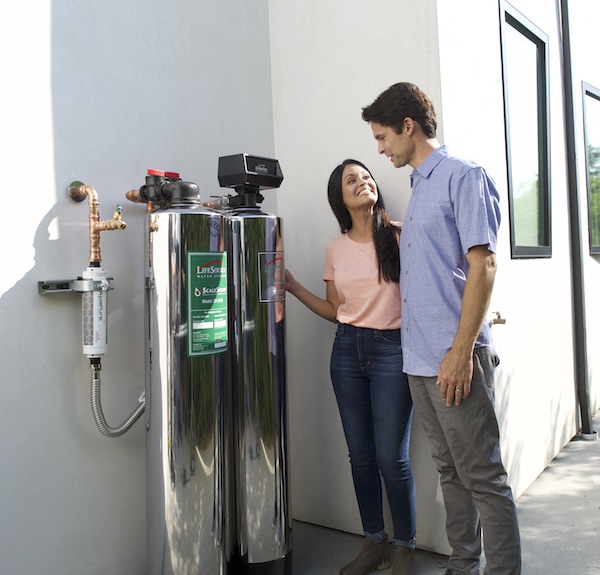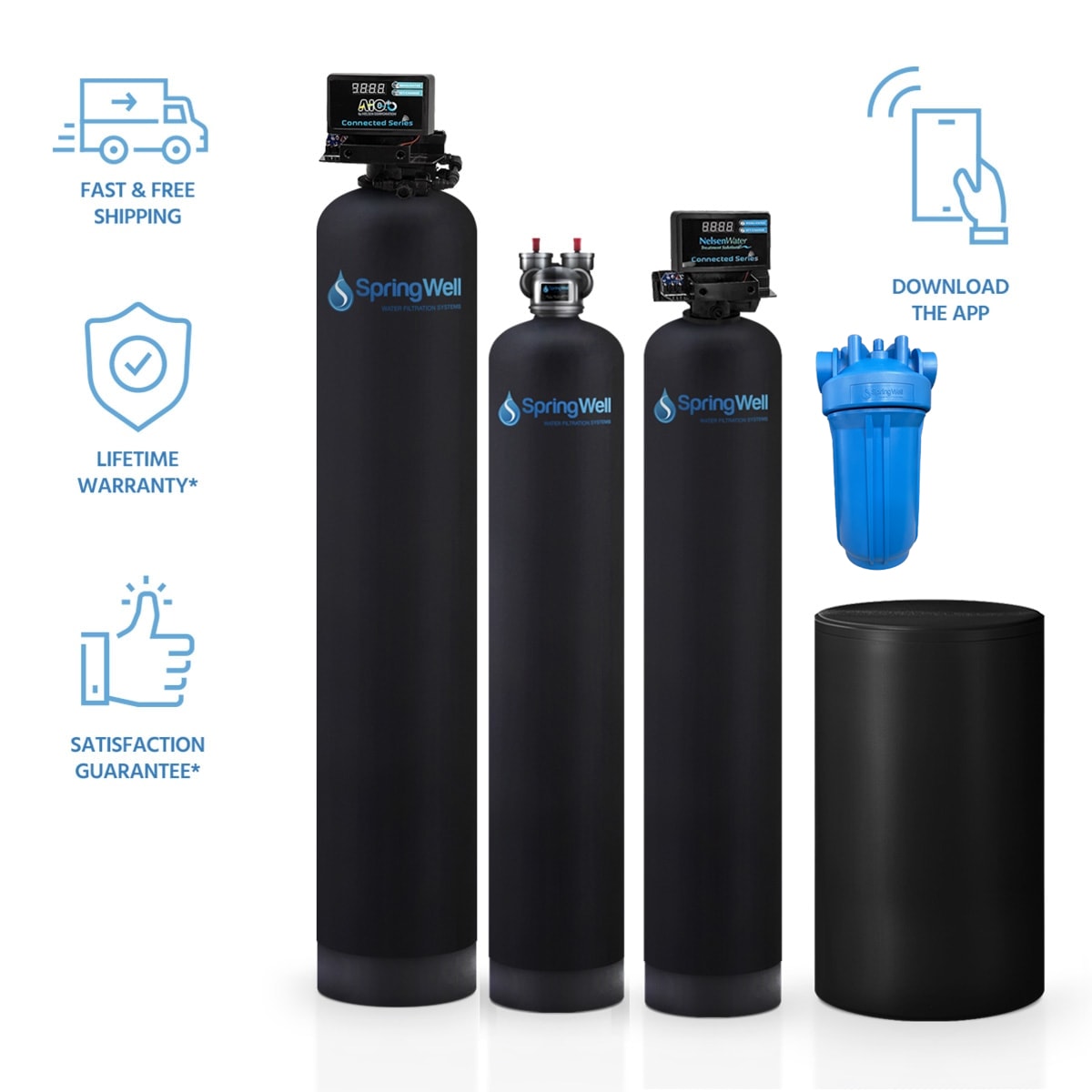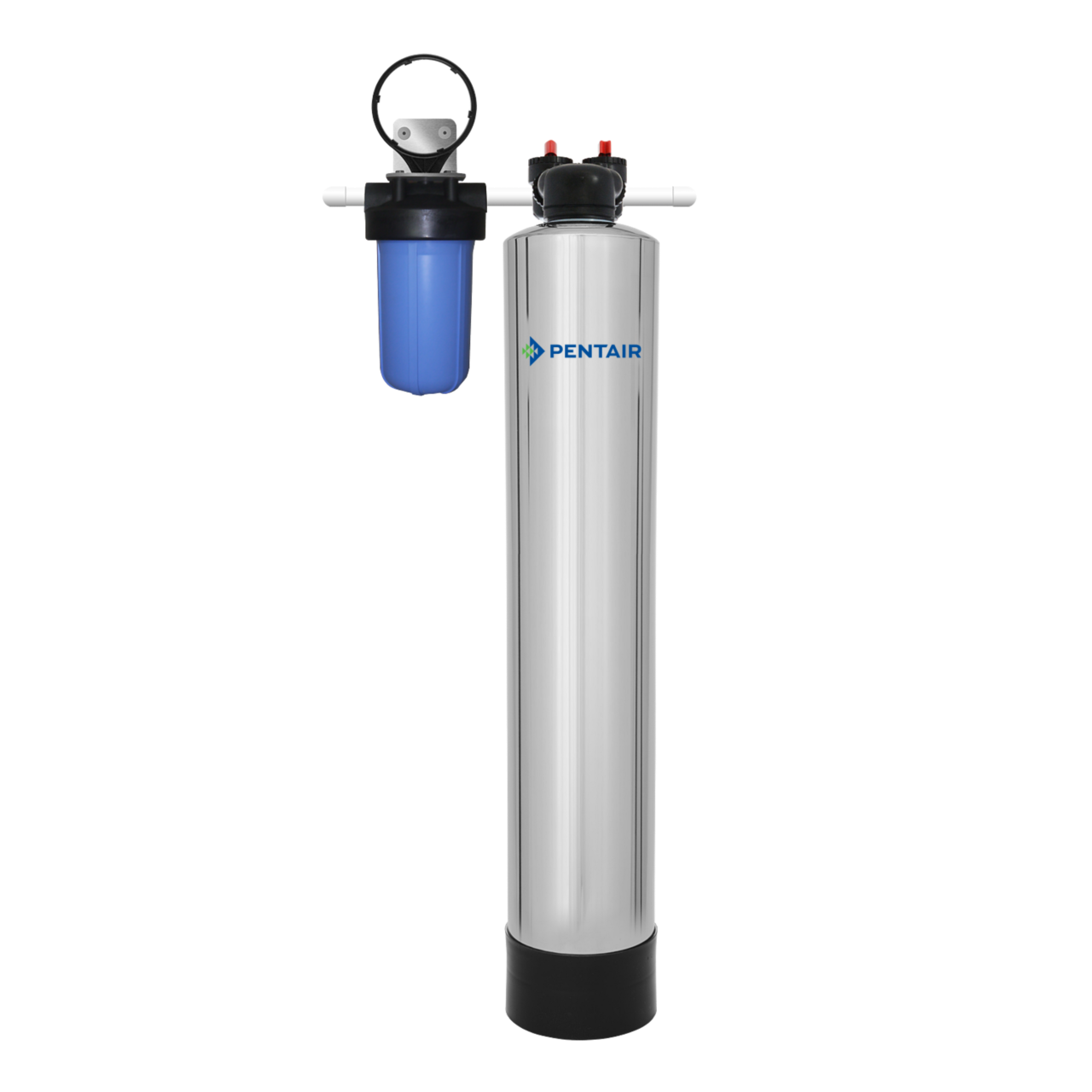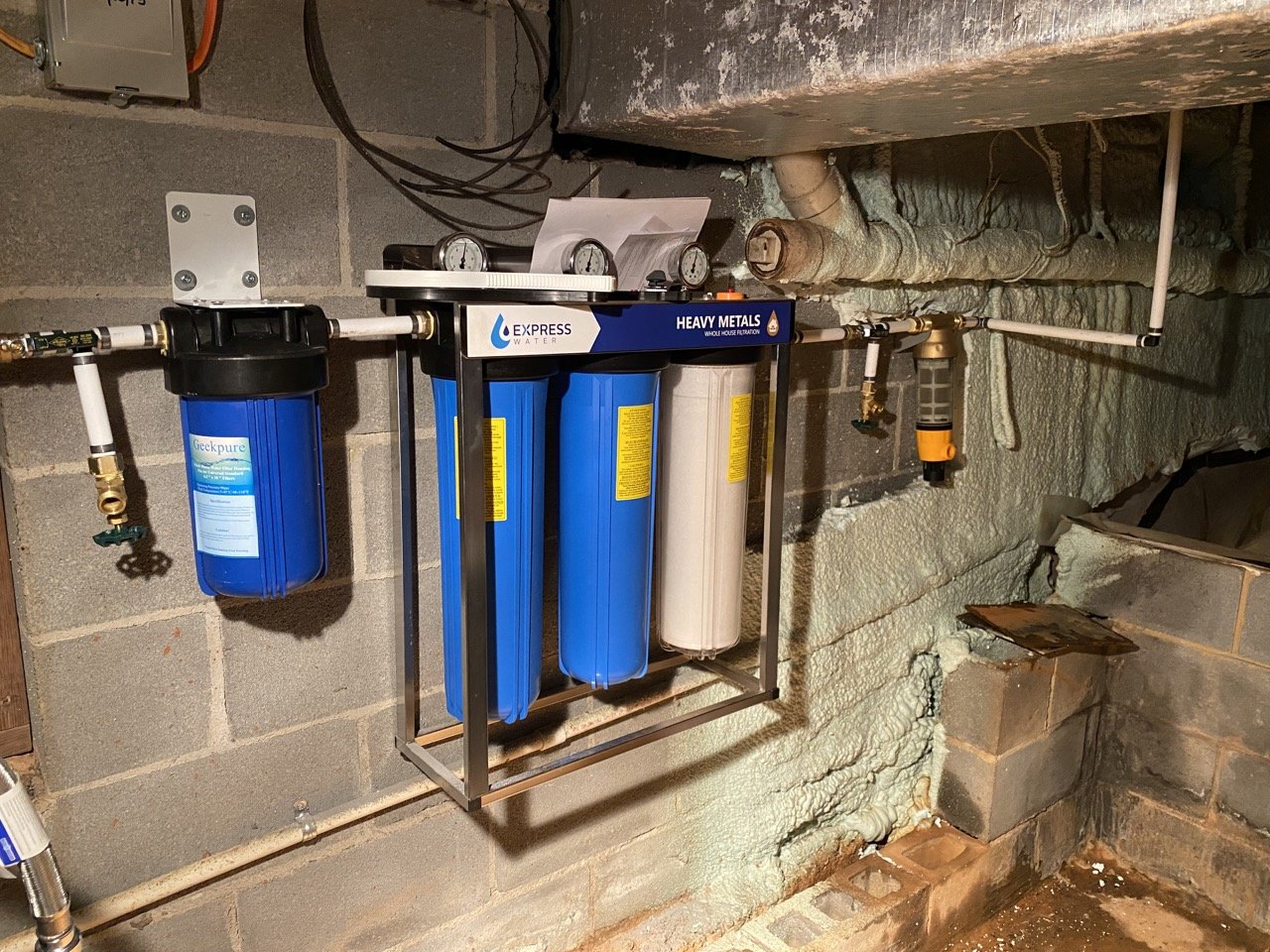Whole house water filtration systems provide clean and safe water for your entire home. These systems remove impurities and contaminants from your water supply, ensuring that you and your family have access to high-quality drinking water at all times.
Water filtration systems are becoming increasingly popular, as more and more people become aware of the potential dangers of unfiltered tap water. Whole house water filtration systems are an excellent investment for anyone who wants to improve the quality of their home’s water supply.
These systems remove a wide range of contaminants, including chlorine, sediment, and heavy metals, leaving you with clean, fresh-tasting water that is safe for drinking, cooking, and bathing. We will explore the benefits of whole house water filtration systems, how they work, and what to look for when choosing a system for your home.
The Essence Of Pure Water At Home
Health Benefits Of Filtered Water
Filtered water provides essential minerals for overall health, ensuring a healthier lifestyle.
Impacts On Skin And Hair
Filtered water enhances skin and hair by preventing the absorption of harmful chemicals.
Whole House Water Filtration Explained
Key Components And Functionality
A whole house water filtration system is designed to ensure that the water entering your home is clean, pure, and safe for consumption and everyday use. The system typically consists of several key components, each playing a crucial role in the filtration process.
- Pre-filter: Removes large particles and sediments from the water.
- Carbon filter: Absorbs impurities, odors, and unwanted tastes from the water.
- Reverse osmosis membrane: Removes contaminants at a molecular level.
- UV sterilization: Kills bacteria and viruses present in the water.
- Post-filter: Ensures the water is polished and ready for distribution throughout the house.
Types Of Filtration Systems
There are several types of whole house water filtration systems available, each offering unique features and benefits tailored to specific water quality concerns.
- Sediment Filtration: Ideal for removing dirt, sand, and rust from the water supply.
- Activated Carbon Filtration: Effectively reduces chlorine, volatile organic compounds (VOCs), and other impurities.
- Reverse Osmosis Systems: Provides comprehensive purification by removing dissolved solids and contaminants.
- UV Water Purification: Destroys harmful microorganisms without altering the water’s taste or odor.
- Multi-Stage Filtration: Offers a combination of different filtration methods for enhanced water quality.
Assessing Your Home’s Water Quality
Ensure your home’s water quality with a whole house water filtration system. Remove impurities and enjoy clean, safe water throughout your home. Say goodbye to contaminants and protect your family’s health.
When it comes to the water you and your family consume on a daily basis, it’s essential to ensure its purity and safety. Assessing your home’s water quality is the first step in understanding the potential contaminants present in your tap water. By identifying these contaminants, you can make informed decisions about implementing a whole house water filtration system to protect your health and well-being.
Common Contaminants In Tap Water
Tap water can contain various contaminants that may have adverse effects on your health. Some common contaminants found in tap water include:
- Bacteria and viruses
- Chlorine and chloramines
- Heavy metals such as lead, mercury, and arsenic
- Pesticides and herbicides
- Industrial pollutants
These contaminants can enter the water supply through various sources, including agricultural runoff, industrial waste, and aging infrastructure. It’s crucial to understand the specific contaminants present in your water to address them effectively.
Methods For Testing Water Purity
Testing your water’s purity is a vital step in assessing its quality. There are several methods available to test your home’s water, including:
- Home Test Kits: These kits are readily available and provide a convenient way to test for common contaminants. They typically include test strips or vials that change color to indicate the presence of specific contaminants.
- Professional Laboratory Testing: For a more comprehensive analysis, you can send a water sample to a certified laboratory. They use advanced techniques to detect a wide range of contaminants and provide detailed reports on your water’s quality.
- Online Water Testing: Some companies offer online water testing services where you can order a testing kit, collect a water sample, and send it back for analysis. The results are usually provided through an online platform, making it easy to access and understand.
By testing your water, you can gain valuable insights into its quality and identify any potential issues. This information will guide you in selecting the most suitable whole house water filtration system to ensure clean and safe water throughout your home.
Selecting The Right Filtration System
When it comes to ensuring clean and safe water throughout your entire home, a whole house water filtration system is an excellent investment. These systems are designed to remove impurities and contaminants from your water supply, providing you with fresh and healthy water for drinking, cooking, bathing, and more. However, with so many options available in the market, selecting the right filtration system can be a daunting task. To help you make an informed decision, here are some important factors to consider and tips for comparing different brands and models.
Factors To Consider
Before purchasing a whole house water filtration system, it’s essential to evaluate certain factors to ensure you choose the right one for your specific needs. Consider the following:
- Water Quality: Assess the quality of your water supply by conducting a water test or consulting a professional. This will help you understand the specific contaminants you need to target.
- Contaminant Removal: Different filtration systems are designed to remove specific contaminants. Identify the contaminants you want to eliminate, such as chlorine, lead, sediment, or bacteria.
- Flow Rate: Determine the flow rate required to meet your household’s water demands. Consider the number of bathrooms, appliances, and occupants in your home to ensure the system can handle the required volume.
- Filter Lifespan and Replacement: Understand the lifespan of the filters and how often they need to be replaced. This will help you estimate the long-term maintenance costs.
- Installation and Maintenance: Consider the complexity of installation and ongoing maintenance requirements. Some systems may require professional installation, while others can be easily DIY.
Comparing Different Brands And Models
Once you have determined your requirements, it’s time to compare different brands and models to find the best whole house water filtration system for your home. Consider the following aspects:
- Filtration Technology: Look for systems that utilize advanced filtration technologies like activated carbon, reverse osmosis, or UV sterilization, depending on your specific needs.
- System Capacity: Ensure that the system’s capacity is sufficient to cater to your household’s water consumption without compromising the flow rate.
- Certifications and Standards: Check if the filtration system meets industry standards and certifications to ensure its effectiveness and reliability.
- Customer Reviews: Read customer reviews and ratings to gain insights into the performance and durability of different systems. Pay attention to any common complaints or issues.
- Warranty and Support: Consider the warranty offered by the manufacturer and the availability of customer support for troubleshooting and maintenance.
By carefully evaluating these factors and comparing different brands and models, you can select the right whole house water filtration system that meets your water quality needs and provides you with peace of mind.
The Installation Process Simplified
Simplify the installation process of whole house water filtration systems with our easy-to-follow steps. Our system ensures clean and healthy water throughout your home, providing peace of mind for you and your family. Experience the convenience and effectiveness of our streamlined installation process today.
Installing a whole house water filtration system can be a daunting task, but it doesn’t have to be. With the right knowledge and tools, the installation process can be simplified and completed in no time. In this article, we will explore the different installation options available and the maintenance requirements for a whole house water filtration system.Diy Versus Professional Installation
When it comes to installing a whole house water filtration system, you have two options: DIY or professional installation. DIY installation is a cost-effective option, but it requires some basic plumbing skills. If you are confident in your plumbing skills and have the necessary tools, you can install the system yourself. However, if you are unsure or don’t have the necessary tools, it is best to opt for professional installation.Maintenance Requirements
Maintaining a whole house water filtration system is easy and requires minimal effort. The system’s filters need to be replaced periodically, depending on the water usage and the type of filter used. The manufacturer’s instructions will provide guidance on when to replace the filters. Additionally, the system’s housing should be cleaned periodically to remove any dirt or debris that may have accumulated. In conclusion, installing a whole house water filtration system can be simplified by choosing the right installation option and following the manufacturer’s instructions for maintenance. Whether you choose DIY or professional installation, a whole house water filtration system can provide clean and safe drinking water for you and your family.
Cost Analysis Of Whole House Filtration
Investing in a whole house water filtration system is a smart decision for homeowners who want to ensure that their tap water is free of harmful contaminants. However, before making a purchase, it is important to understand the cost implications of installing a whole house filtration system. In this section, we will discuss the initial investment versus long-term savings and hidden costs that you should be aware of.
Initial Investment Vs. Long-term Savings
The initial cost of a whole house filtration system can be significant, but it is important to consider the long-term savings. While the cost of replacement filters and maintenance can add up over time, the benefits of having clean and safe water throughout your home can outweigh the expense. In addition to the health benefits, a whole house filtration system can also save you money on bottled water and extend the life of your appliances that use water such as dishwashers and washing machines.
Hidden Costs To Be Aware Of
While the long-term savings of a whole house filtration system are significant, there are hidden costs to be aware of. One of the most common hidden costs is the installation cost. Depending on the complexity of your plumbing system, the cost of installation can be high. It is important to get a quote from a professional installer before making a purchase. Another hidden cost is the cost of replacement filters. While the frequency of replacement varies depending on the system and the quality of your water, it is important to factor in the cost of replacement filters when making a purchase decision.
| Cost | Description |
|---|---|
| Initial Investment | The cost of purchasing and installing a whole house filtration system. |
| Long-Term Savings | The savings on bottled water and extending the life of appliances that use water. |
| Installation Cost | The cost of hiring a professional plumber to install the system. |
| Replacement Filters | The cost of replacing filters over time. |
- While the initial investment of a whole house filtration system may be high, the long-term savings and health benefits are worth it.
- Be sure to factor in the cost of installation and replacement filters when making a purchase decision.
- A whole house filtration system can save you money on bottled water and extend the life of your appliances that use water.
Investing in a whole house filtration system is a smart decision for homeowners who want to ensure that their tap water is free of harmful contaminants. While the initial investment may be high, the long-term savings and health benefits are worth it. It is important to factor in the cost of installation and replacement filters when making a purchase decision, but a whole house filtration system can save you money on bottled water and extend the life of your appliances that use water.
Real-life Benefits: Testimonials And Case Studies
When it comes to making a decision about installing a whole house water filtration system, hearing real-life testimonials and case studies can provide valuable insights. Knowing how others have benefited from these systems can help you understand the potential improvements in water quality and the impact it can have on daily life. Here, we share stories from satisfied users and measurable improvements in water quality.
Stories From Satisfied Users
There’s nothing quite like hearing directly from those who have experienced the benefits of a whole house water filtration system. Here are some real-life stories from satisfied users:
- John, a homeowner in [City], noticed a significant difference in the taste of his tap water after installing a whole house water filtration system. He shared, “I used to dread drinking tap water, but now it tastes clean and refreshing. It’s made a noticeable difference in our daily lives.”
- Sarah and Mike, a couple with young children, installed a whole house water filtration system to ensure the safety of their family’s water supply. Sarah exclaimed, “Knowing that our children are drinking and bathing in clean, filtered water gives us peace of mind. It’s a small investment for their health and well-being.”
- Emily, a fitness enthusiast, noticed an improvement in her skin and hair after switching to filtered water throughout her home. She said, “My skin feels softer, and my hair looks healthier. It’s amazing how much of a difference filtered water can make.”
Measurable Improvements In Water Quality
Aside from the personal stories, whole house water filtration systems offer measurable improvements in water quality. Here are some key benefits:
| Improved Taste | Eliminating impurities and contaminants from your water can greatly enhance its taste, making it more enjoyable to drink and cook with. |
|---|---|
| Reduced Chlorine Exposure | A whole house water filtration system removes chlorine and its byproducts, reducing the risk of chlorine-related health issues and the unpleasant odor associated with chlorine-treated water. |
| Minimized Scale Build-up | By reducing the presence of minerals like calcium and magnesium, a whole house water filtration system helps prevent scale build-up in pipes, appliances, and fixtures, prolonging their lifespan. |
| Enhanced Skin and Hair | Filtered water can improve the health and appearance of your skin and hair by removing harsh chemicals and contaminants that can cause dryness and irritation. |
These measurable improvements not only enhance your overall water quality but also contribute to a healthier and more enjoyable living environment.

Navigating Regulations And Compliance
When it comes to ensuring the safety and quality of your household water, navigating regulations and compliance is of utmost importance. Understanding local water standards and ensuring your whole house water filtration system is up to code are crucial steps in safeguarding your family’s health and well-being.
Understanding Local Water Standards
Before diving into the world of whole house water filtration systems, it’s essential to familiarize yourself with the local water standards in your area. Each region may have specific regulations and guidelines that dictate the acceptable levels of contaminants in drinking water. Researching and understanding these standards will help you make informed decisions when selecting a water filtration system.
Local water standards typically cover various parameters such as pH levels, microbial contaminants, heavy metals, disinfectants, and other potential pollutants. These standards are put in place to protect public health and ensure the water supplied to households meets quality requirements.
Ensuring Your System Is Up To Code
Once you have a clear understanding of the local water standards, it’s time to ensure that your chosen whole house water filtration system meets these requirements. It’s crucial to select a system that is designed to effectively remove the specific contaminants that may be present in your water supply.
One way to ensure compliance is by looking for certifications or approvals from reputable organizations such as the National Sanitation Foundation (NSF) or the Water Quality Association (WQA). These certifications indicate that the filtration system has undergone rigorous testing and meets the necessary standards for contaminant removal.
Additionally, it’s important to regularly maintain and service your water filtration system to ensure optimal performance. This includes regularly replacing filters, conducting inspections, and addressing any issues promptly. By doing so, you can be confident that your system continues to meet the required codes and regulations.
In Conclusion
Understanding local water standards and ensuring your whole house water filtration system is up to code are vital steps in safeguarding your family’s water quality. By staying informed and selecting a system that meets the necessary standards, you can enjoy clean and safe water throughout your home.
Advanced Features And Upgrades
When it comes to ensuring the highest quality of water for your home, advanced features and upgrades in whole house water filtration systems can make a significant difference. These innovative enhancements not only provide superior water purification but also offer added convenience and sustainability.
Smart Technology Integration
Modern whole house water filtration systems are equipped with smart technology that allows for remote monitoring and control. This integration enables homeowners to conveniently track the system’s performance and receive real-time alerts for filter replacements or maintenance requirements. The intuitive interface of these smart systems ensures hassle-free operation and peace of mind, knowing that your water is consistently filtered to the highest standards.
Eco-friendly Options
With a growing focus on sustainability, eco-friendly upgrades in whole house water filtration systems have become increasingly popular. These systems feature energy-efficient components that minimize power consumption while maintaining optimal filtration levels. Additionally, advanced filtration media and technologies are designed to reduce waste and minimize environmental impact, making these systems a responsible choice for eco-conscious homeowners.

Frequently Asked Questions
What Is The Average Cost Of A Whole Home Water Filtration System?
The average cost of a whole home water filtration system ranges from $1,000 to $3,000. Factors such as system type and installation complexity can impact the final cost. It’s essential to consider maintenance expenses as well.
Are Whole House Water Filtration Systems Worth It?
Yes, whole house water filtration systems are worth it. They provide clean and safe water for drinking, cooking, and bathing, while also protecting your appliances and plumbing from damage caused by hard water and contaminants. Installing a whole house water filtration system is a long-term investment that can improve your overall health and save you money in the long run.
What Is The Best Water Filtration Method For Home?
The best water filtration method for home is a reverse osmosis system. It removes impurities and contaminants by forcing water through a semipermeable membrane. It is highly effective and produces clean, safe and great-tasting water for drinking and cooking.
How Long Does A Whole House Water Filter System Last?
A whole house water filter system typically lasts for 10 to 15 years before needing replacement. Regular maintenance and filter changes can extend the lifespan. Regularly check and replace filters to ensure efficient and effective filtration.
Conclusion
Whole house water filtration systems are essential for ensuring clean, safe water throughout your home. With their ability to remove impurities and contaminants, these systems provide peace of mind and better overall health for you and your family. Investing in a whole house water filtration system is a smart decision for long-term wellness.

